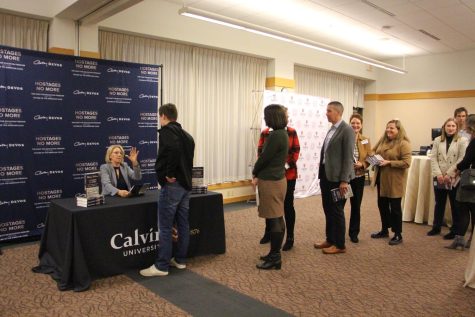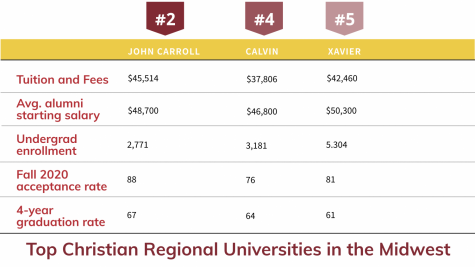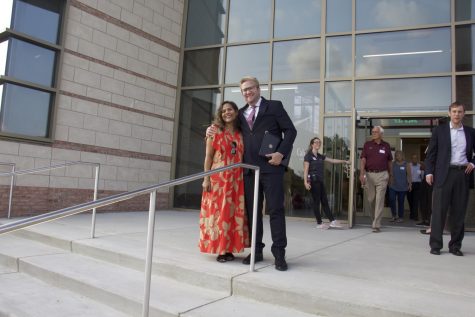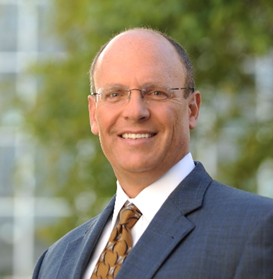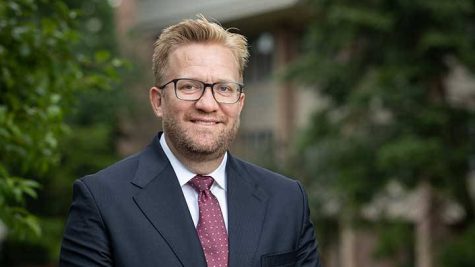DeVos withdraws guidance on Title IX enforcement
Calvin alumna and US Secretary of Education Betsy DeVos announced on Sept. 21 the withdrawal of Title IX guidance introduced in 2011 and 2014. These two documents determined how the government enforces Title IX in issues such as sexual violence and campus sexual misconduct. The move affects how the government holds Calvin and other academic institutions accountable for addressing sex discrimination, which includes sexual harassment and sexual violence.
Title IX is federal law that prohibits sex discrimination in institutions receiving federal funds. The Office for Civil Rights (OCR) is in charge of developing guidelines to enforce Title IX. The 2011 “Dear Colleague Letter,” released by the OCR, required institutions to take steps to adequately investigate, adjudicate and prevent sexual violence. Failing to meet requirements risked fines and the withdrawal of federal funding, so removing the guidance removes that risk.
Rachel Venema, a Calvin sociology professor who researches sexual assault prevention, said losing the guidelines could lead to confusion and lack of accountability.
“Without the Dear Colleague Letter, universities are left with less guidance on how to respond” said Venema. “The Dear Colleague guidelines also were accessible to students, so they could hold their universities accountable if they were not following the required process.”
In her explanation for the withdrawal, DeVos said the guidance “failed too many students” and that she would work on a new approach that would “get the process right for all students involved.”
DeVos also criticized the 2011 regulations for not following standard rulemaking and public comment processes, in which affected parties and members of the public have a chance to give their views on proposed rules. Devos indicated her replacement policy would do so.
“We will launch a transparent, notice-and-comment process to incorporate the insights of all parties in developing a better way,” DeVos said.
The Safer Spaces leaders at Calvin recognized value in these processes: “We support the idea of using a rulemaking process because it allows practitioners doing the work of responding to sexual assaults at colleges and universities an opportunity to shape the new regulations,” said Todd Hubers. Hubers is the VP for people, strategy and technology and the Safer Spaces administrator.
In the official document of withdrawal, The Department of Education also condemned the regulations set by the OCR in 2011 saying the rules “lack the most basic elements of fairness and due process, are overwhelmingly stacked against the accused.”
The withdrawn 2011 guidance contained protections for both victims and the accused, but some protections still exist in the 2001 guidance which DeVos upheld. The 2011 guidance includes the following requirements: Plaintiffs and defendants in sexual misconduct cases must receive equal access to lawyers, and any information shared with one party must be shared with the other. Both parties must have equal opportunities to present witnesses and evidence. Institutions must provide impartial investigations of misconduct, due process to the alleged perpetrator, and an assurance that the school will act to prevent recurrences.
One of DeVos’ main reasons for withdrawing the 2011 guidance was the standard of preponderance of evidence it required in sexual misconduct cases. The new guidance allows the use of a significantly higher “clear and convincing” standard. Since cases of sexual assault often lack witnesses or abundant evidence, some worry that lowering the standard would make reporting seem pointless to victims in many cases.
Olabisi Okubadejo, who worked in the OCR for six years, said that a higher evidentiary standard could make victims of sexual misconduct more hesitant to report.
“We all would not want to see people who have experienced misconduct to feel that they have nowhere to go,” Okubadejo said.
Judge Saylor, of a US District Court in Boston, sees the change differently. He wrote that the “lower standard may thus be seen, in context, as part of an effort to tilt the playing field against accused students.”
Hubers explained that “Calvin has used the preponderance of evidence standard in student cases — including sexual misconduct — for over 20 years because it is considered to be a best practice in student conduct cases.”
Without the 2011 guidance, how will Calvin approach the problems of sexual discrimination, harassment and violence?
Venema hopes that Calvin will continue to offer the training and education it has introduced in recent years.
“I fear that those opportunities will all go away, and colleges will be left trying to do this on their own. I also fear that colleges and universities will start putting less resources in this area-to prevention and education efforts,” she said.
The Safer Spaces leaders indicated that things will not change, at least for now.
“Calvin College will continue to respond to reports using the Safer Spaces policies and procedures until further notice,” Hubers said.
Hubers also stated that Calvin would continue using the preponderance of evidence standard unless the government regulations change again.
Professor Venema encouraged students and members of the community to speak up and take action.
“I would hope that Calvin’s constituents would be proactive in encouraging the College to continue making positive gains in this area,” Venema said. “I think student voices are very powerful, and I’d love to see a more vocal student movement related to this issue.”
The withdrawn 2011 Dear Colleague Letter and the new Q&A on Campus Sexual Misconduct are both available on the DOE website.





